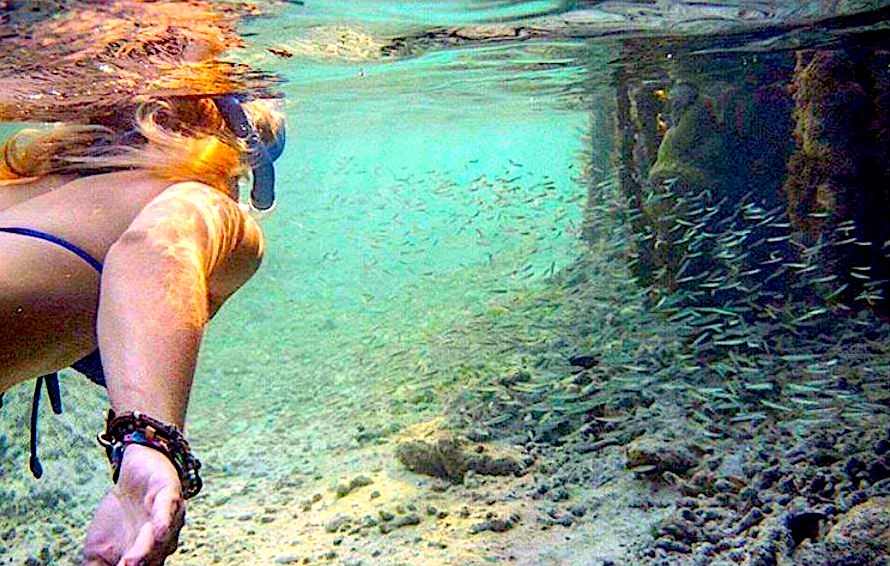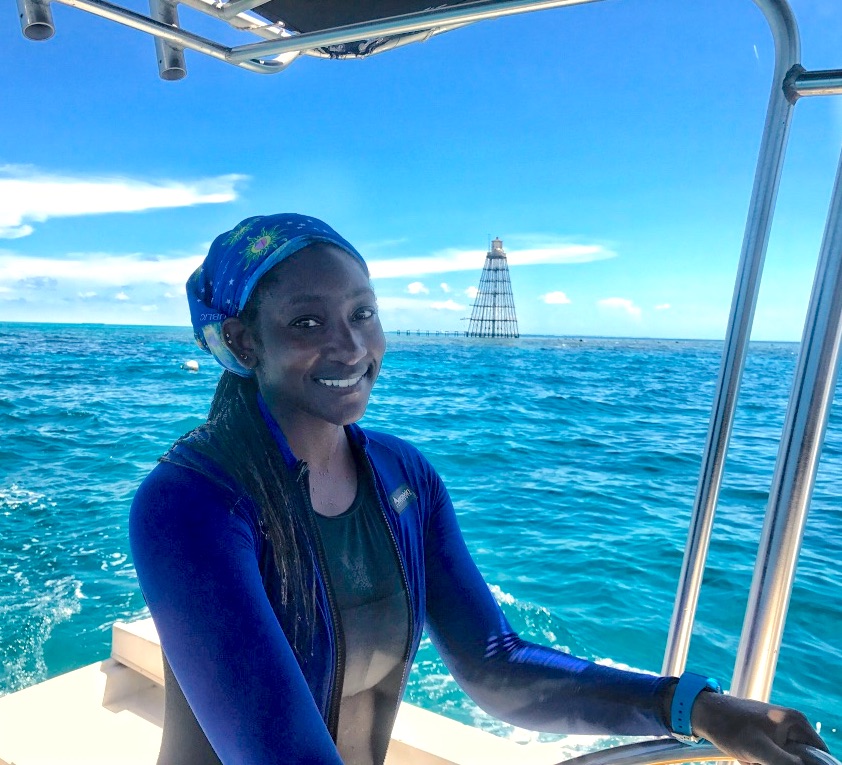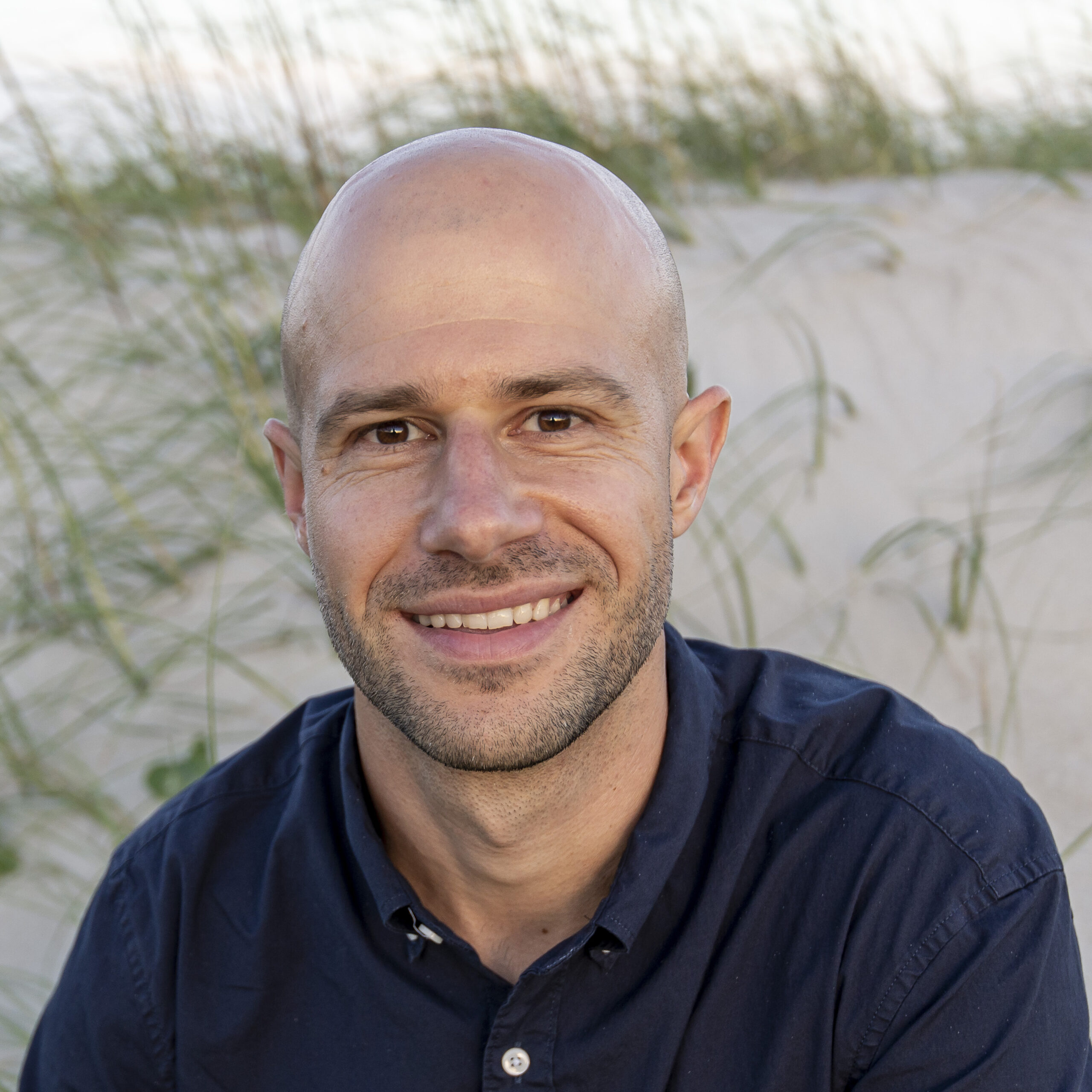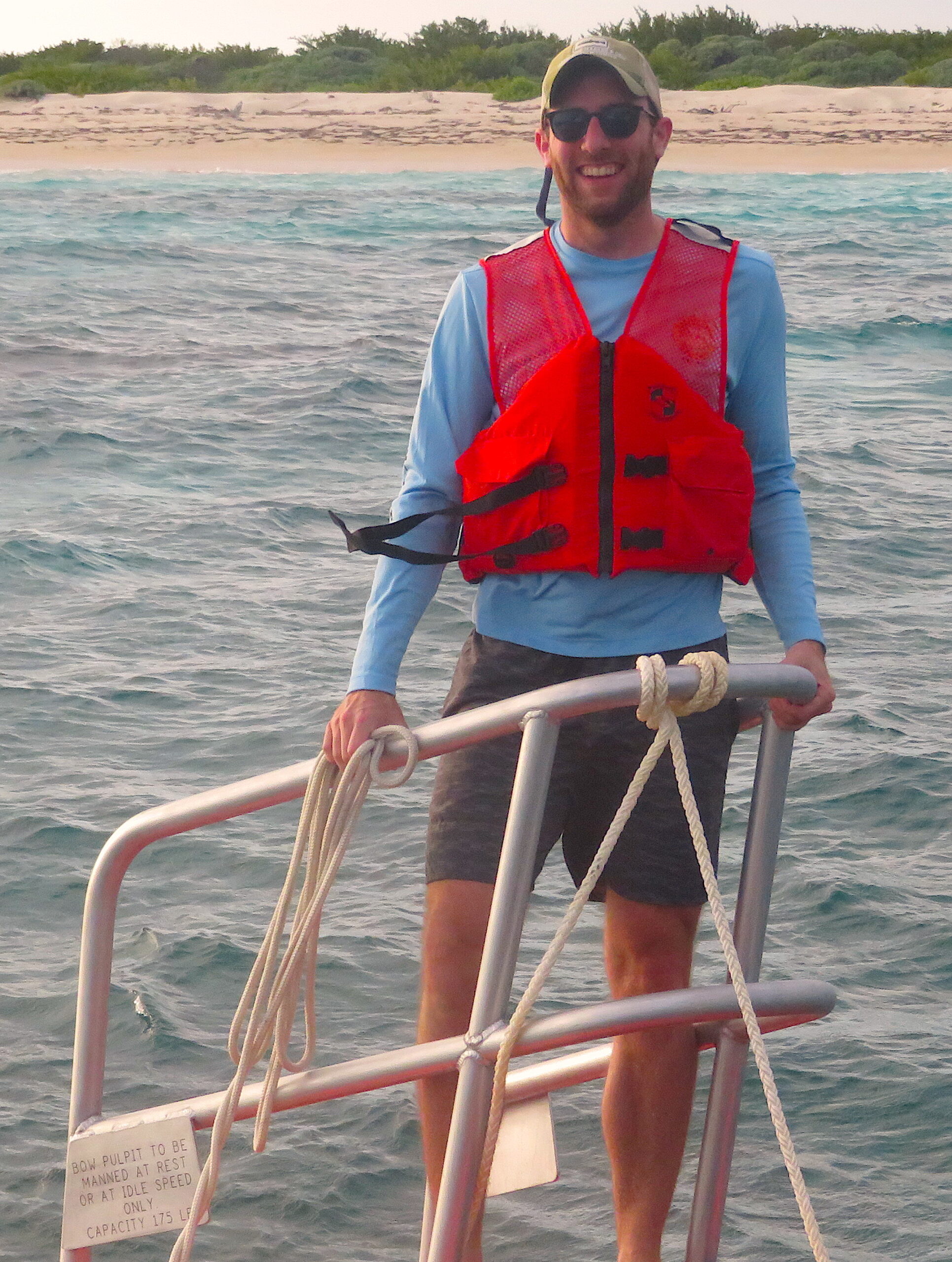NOAA and Sea Grant Select Four Knauss Fellowship Finalists from NC

For immediate release
Contact:
Katie Mosher, kmosher@ncsu.edu
After a highly competitive review process, NOAA and Sea Grant have announced the finalists for the 2021 class of the Sea Grant John A. Knauss Marine Policy Fellowship program. These 74 finalists include four graduate students from North Carolina: Jashira Torres Pabón, Kayelyn Simmons, Joseph Fader and Cameron Adams.
The Knauss Fellowship is a year-long program for graduate students who are interested in national policy issues affecting ocean, coastal and Great Lakes resources. Later this year, potential hosts will match finalists with placements in federal offices in Washington, D.C. Fellows will begin serving in February.
“We are excited to welcome the 2021 class of Knauss fellows and look forward to the skill and perspective that they will provide towards addressing critical marine policy and science challenges,” says Jonathan Pennock, National Sea Grant College Program Director. “As the government and the sciences adapt to new norms for working, driven by the COVID-19 pandemic, the Knauss fellowship will create novel opportunities for the fellows to redefine how government and science interact and operate for the benefit of society.”
The fellowship honors John A. Knauss, a founder of the National Sea Grant program, who also served as NOAA administrator and dean of the University of Rhode Island’s Graduate School of Oceanography.

“A Knauss Fellowship is an excellent opportunity to develop career-long personal and professional relationships,” says Susan White, executive director of North Carolina Sea Grant. “Our fellows always bring a combination of topical expertise and engaging personalities to address pressing issues — and ultimately to serve our nation. ”
North Carolina’s finalists have a wide array of research interests and experiences. North Carolina State University and Duke University each have provided the educational training ground for two finalists this year.
Jashira Torres Pabón earned her master’s degree in marine policy and administration at NC State. Through summer internships with the National Fish and Wildlife Foundation, she has worked on policy and regulatory aspects of the recreational red snapper fishery for her thesis project. She also is a new economics research assistant with North Carolina Sea Grant.

“I remember learning about the Knauss Fellowship back in 2016, while attending a Sea Grant Puerto Rico outreach event where a former fellow was talking about his experience with the program,” she says. “Being selected as a Knauss finalist is more than an honor; it is a dream come true. I aspire to work at a level where I can impact not only management decisions but to develop strategies to involve academia and communities to work as a whole towards the preservation of our nation’s marine resources.”
Kayelyn Simmons is pursuing her Ph.D. in marine science at NC State and holds a master’s degree in marine biology from Nova Southeastern University. Her doctoral research uses emerging soundscape tools, along with more conventional approaches, to better assess spatial patterns in reef ecosystems.
“I have always been interested in the dynamic relationship between coral reef conservation and the direct and indirect impacts these resources have on coastal communities,” says Simmons. “This opportunity gives me the chance to apply my research experiences and knowledge to real-life, current issues in ocean conservation, providing the ultimate stewardship endeavor to kickstart my career as marine biologist.”

Joseph Fader’s research as a Ph.D. candidate in Duke University’s Nicholas School of the Environment explores the interaction between marine mammals and the long-line fishery and incorporates an economic analysis.
“My research has been devoted to producing science that informs fishery management and policy, especially under the umbrella of federal fishery regulations, but I’ve yet to directly experience how federal policy is shaped and created,” he says. “Serving as a Knauss fellow can provide invaluable insights into this process, making me a more effective professional as I move forward with my career in marine resource conservation and management.”
For his master’s project, Cameron Adams, also from the Nicholas School of the Environment at Duke, used the latest satellite data and new drone techniques to help landowners track the retreat of their shorelines and coastal habitats.

“I expect the Knauss fellowship will offer me invaluable insight into the marine policy arena at the federal level, which will undoubtedly help shape my future career path,” Adams says. “I plan to use the fellowship as an opportunity to explore new skills and aspects of the marine policy field that are less familiar to me.”
This year’s finalists join more than 80 from North Carolina who have served during the four-decade history of the Knauss Fellowship. Since 1979, over 1,400 fellows have completed the program, becoming leaders in science, policy, and public administration.
Read more about the 2021 class of the Sea Grant John A. Knauss Marine Policy Fellowship program.
Read about one of North Carolina’s current Knauss Fellows and her latest work.
Read more about North Carolina Sea Grant’s funding opportunities for students and faculty.
##
North Carolina Sea Grant: Your link to research and resources for a healthier coast
- Categories:


